Cleaning to Conquer Flu Season: Your Home’s Guide
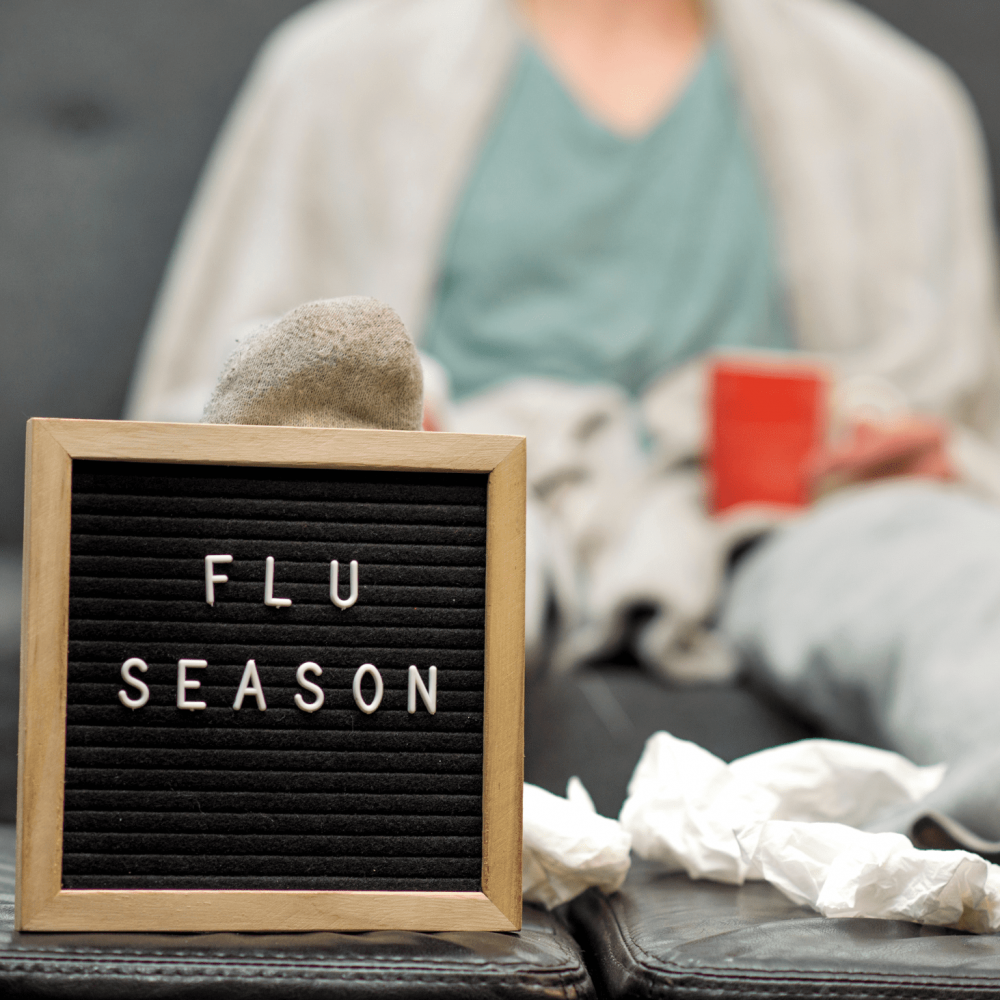
As the weather gets colder and we stay inside more, we need to remember that cold and flu season is here. The influenza virus, which is a common illness that affects the lungs, spreads easily during this time. Getting your flu vaccination each year is the best way to support your immune system, but we are gonna teach you how also keeping your home clean helps reduce your risk of flu and protects your family.
Understanding Flu Season and Home Vulnerabilities
Cold and Flu season happens in the fall and winter months. In the United States, it often peaks between November and February. The influenza virus spreads more easily during this period, especially in closed, indoor places where people are together.
If homes do not maintain good hygiene and cleaning, they can easily become places for viruses to thrive. With family members frequently moving around, touching surfaces, and using shared spaces, the risk of spreading the influenza virus goes up a lot.

The Importance of a Clean Home During Flu Season
Maintaining a clean home during flu season is very important for disease control. The flu virus spreads through small droplets that come out when a sick person coughs or sneezes. These droplets can land on surfaces and stay infectious for some time.
If you touch these contaminated surfaces, like doorknobs, countertops, or toys, you can get the flu virus on your hands. Then, if you touch your eyes, nose, or mouth, you bring the virus into your body, which makes it easier to get sick.
Cleaning regularly with the right disinfectants helps get rid of these viruses from surfaces. This breaks the chain of infection and keeps you and your family safe from the flu virus and other respiratory viruses.
Essential Cleaning Supplies and Eco-Friendly Alternatives
Choosing the right cleaning products matters a lot. The cleaning process is just as vital. Many store-bought cleaners kill germs well. However, picking eco-friendly options is often better. It gives a gentle clean without losing how well it works.
This section will look at regular cleaning products and the greener ones. This way, you can choose what is best for a healthier and more sustainable way to clean.
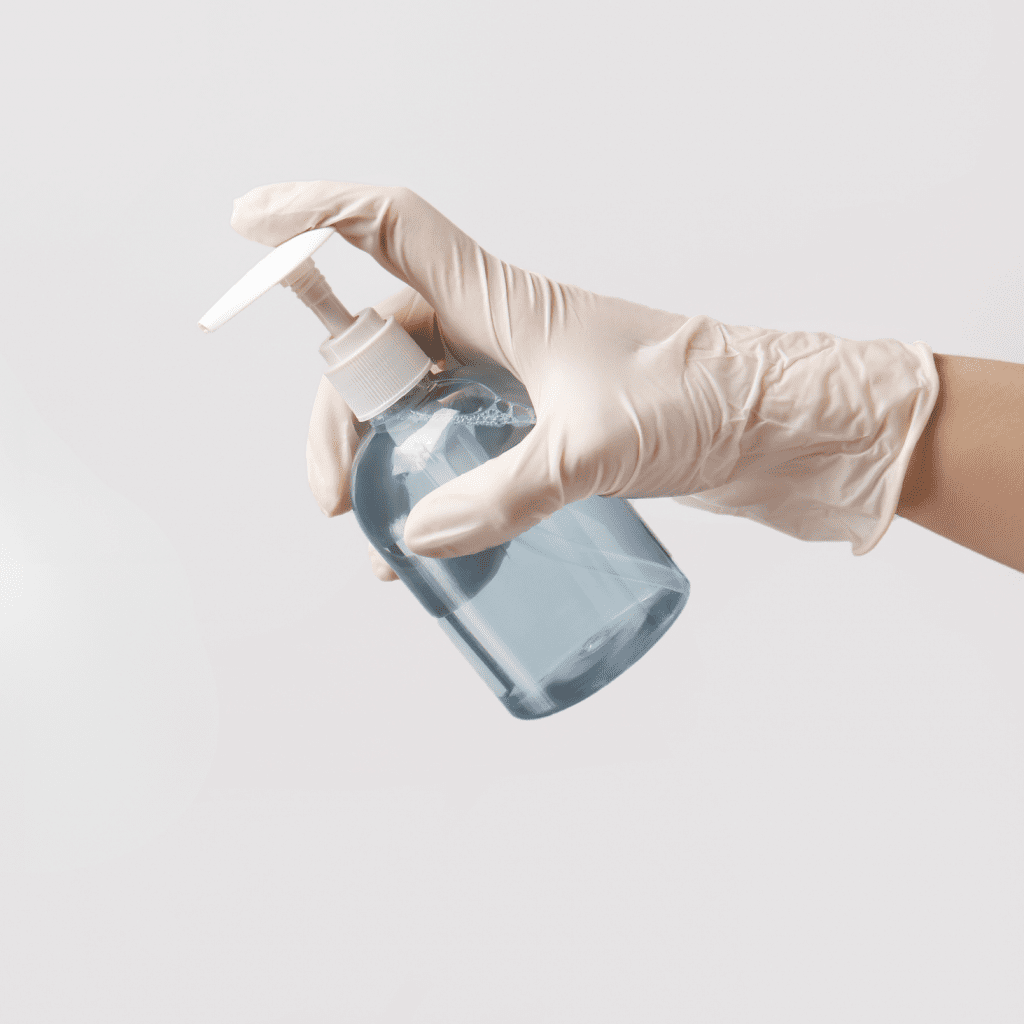
The Best Cleaning Products for Flu Prevention
When you fight the flu virus, your cleaning supplies matter a lot. Choosing the right products makes sure you clean well and stop the flu from spreading.
There are many cleaning products available, but it’s smart to pick EPA-registered disinfectants. These products are tested and shown to work against many viruses, including the flu virus.
Here are some important cleaning supplies to have when fighting the flu:
- EPA-registered disinfecting wipes: These are great for quick cleaning of spots you touch often.
- Disinfectant sprays: Use these for cleaning larger areas and items you use a lot.
- Microfiber cloths: These reusable cloths remove dirt and grime well and can be washed and used again.
- Disposable gloves: These protect your hands while you clean, especially if someone has flu symptoms.
Eco-Friendly Cleaning Solutions That Work
If you want a easier way to clean that still works well, there are many eco-friendly cleaning options. These products are better for your family, pets, and the planet while fighting germs effectively.
Many eco-friendly cleaners use natural items like vinegar, baking soda, and essential oils. These provide a strong clean without strong chemicals. You can find these ingredients easily in most grocery stores in the United States. They are also a cheaper choice compared to regular cleaners.
Here are some eco-friendly cleaning options you might like:
- White vinegar: This has acidic properties that kill many germs and bacteria.
- Hydrogen peroxide: This disinfectant breaks down into water and oxygen. It leaves no harsh residue.
- Essential oils: While not all, some essential oils like tea tree and eucalyptus can help fight germs.

Room-by-Room Cleaning Guide
Disinfecting the Kitchen to Prevent the Flu
The kitchen is often seen as the heart of the home. It is a busy place and can easily spread germs. Cooking and preparing food make it very important to keep this area clean to avoid the flu and food borne illness.
Make sure to focus on the high-touch areas when you clean your kitchen. Wipe down countertops, sinks, and faucets daily. Clean cabinet handles, appliance surfaces like the refrigerator, oven, and microwave, and the kitchen table with an EPA-registered disinfectant. Fight disease control by stopping germs where they come from.
Don’t forget about areas that people often miss, like the dishcloth and sponge. These can hold a lot of bacteria. Be sure to wash them regularly in hot water or use disposable options during flu season. Keeping your kitchen clean helps keep your family healthy.
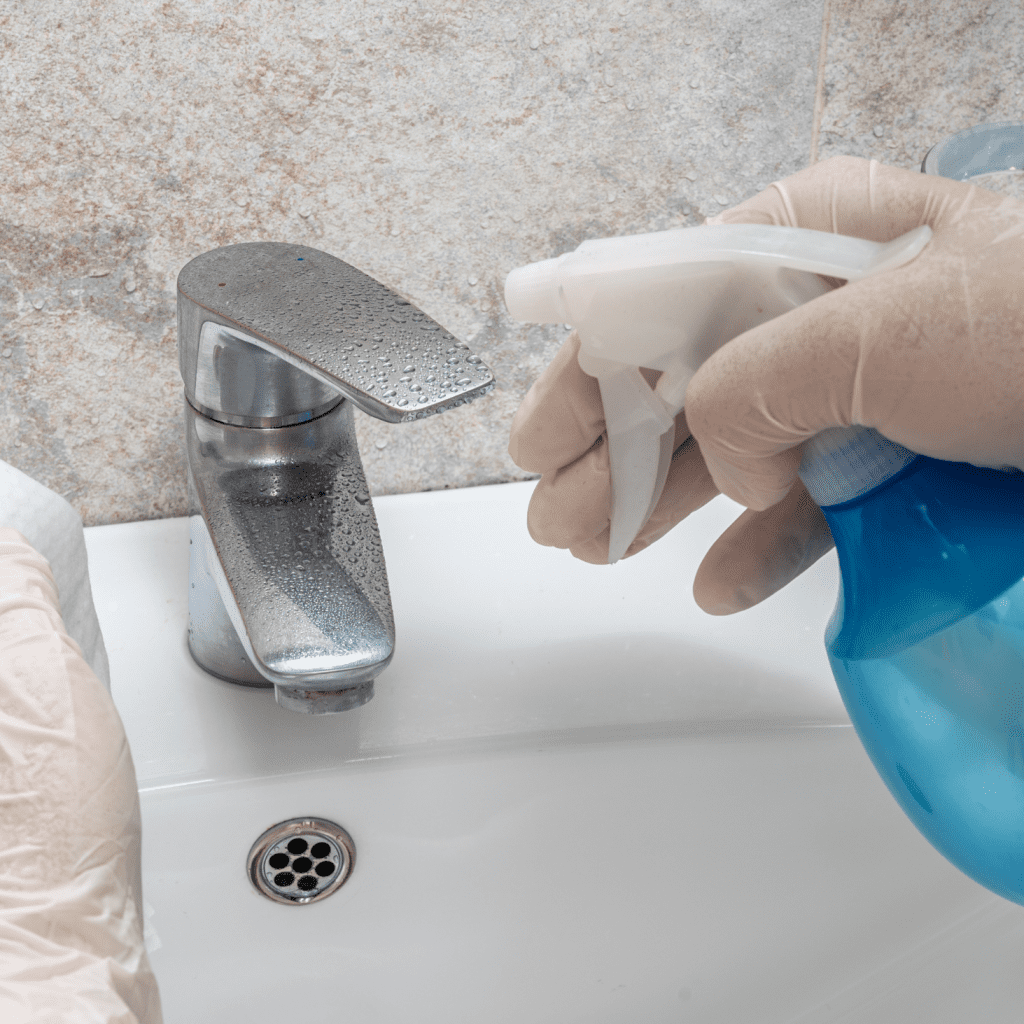
Sanitizing the Bathroom – A Flu Prevention Must
The bathroom is an important place to prevent the flu. It needs regular cleaning and sanitizing. Because it can be damp and hold many germs, keeping the bathroom clean is key for a healthy home.
Pay attention to surfaces that people touch often. This includes the toilet handle, sink faucets, light switches, doorknobs, and the floor near the toilet. Use disinfecting wipes or sprays to cover these areas well.
If someone has a weakened immune system, they are at higher risk of getting viruses and facing flu complications. By keeping the bathroom clean, you are not just wiping down surfaces; you are making a healthier space for your family.
Keeping Bedrooms Germ-Free During Flu Season
Bedrooms are personal spaces, but they can still collect germs, especially from respiratory viruses like the flu. It’s important to keep these areas clean and disinfected to help prevent sickness.
When you clean your bedroom, pay special attention to places that people touch often. This includes nightstands, lamp switches, doorknobs, and surfaces where items are often put down, like dressers and desks. Make sure to wash your bedding, such as sheets, pillowcases, and blankets, in hot water regularly to get rid of any germs.
Keep in mind that young children can easily get infections because their immune systems are still developing. Cleaning their bedrooms carefully can help make their space safe and healthy for resting and recovering.
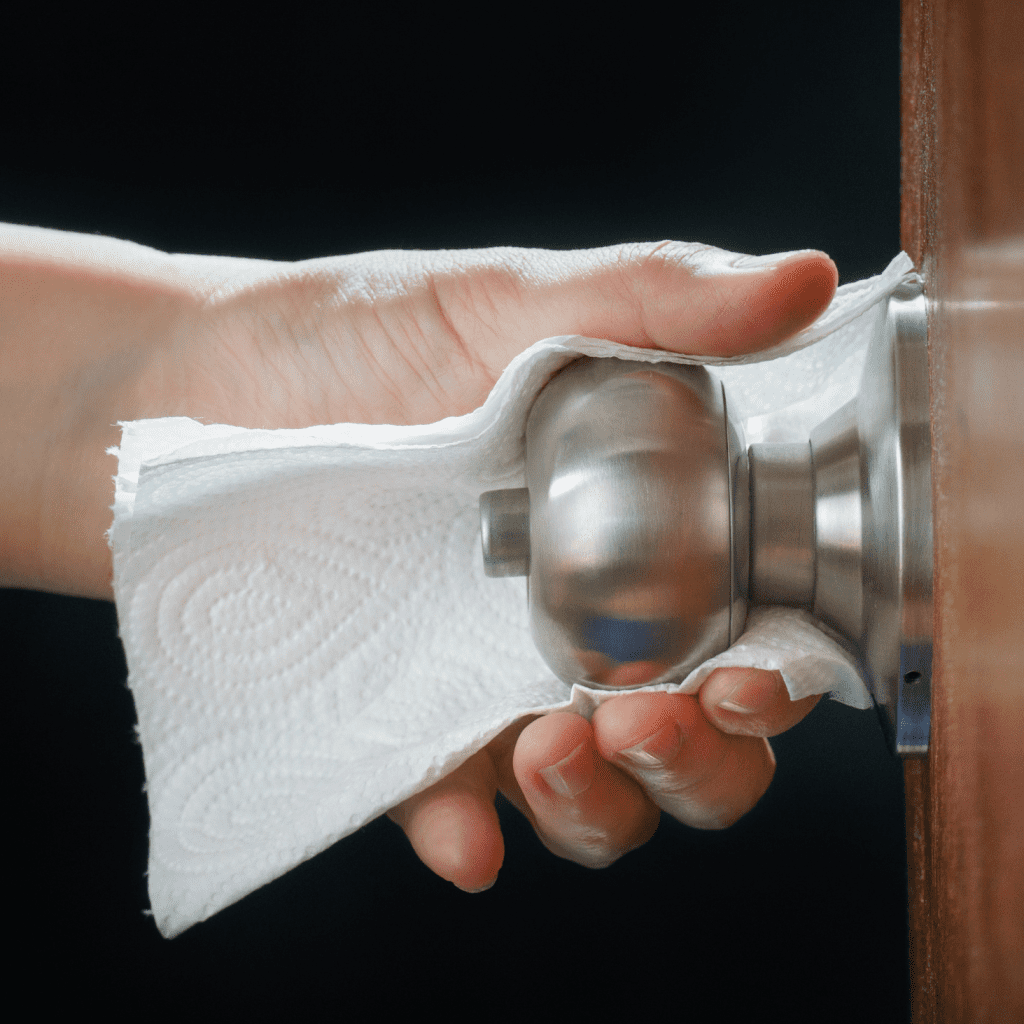
Special Focus on High-Touch Surfaces
We have talked about cleaning each room, but it is important to remember high-touch surfaces. These common items can carry germs and help spread viruses like the flu.
When we include daily cleaning habits for these surfaces, we can stop the spread of germs. This really helps lower the risk of getting or spreading the flu virus.
Daily Cleaning Checklist for High-Touch Areas
Integrating a daily cleaning routine for high-touch surfaces is a simple yet effective way to prevent the spread of germs. These small acts of cleanliness contribute significantly to a healthier home environment, especially during flu season. While getting your annual flu shot offers significant protection, these daily habits help avoid close contact with germs and provide an added layer of defense against the flu and the common cold.
Focus your cleaning efforts (especially if someone in your home is sick) on these frequently touched areas:
| High-Touch Area | Frequency | Cleaning Method |
| Doorknobs | Multiple times daily | Disinfecting wipes or spray |
| Light switches | Multiple times daily | Disinfecting wipes or spray |
| Faucets | Multiple times daily | Disinfecting wipes or spray |
| Countertops | Multiple times daily | Disinfecting wipes or spray |
| Sinks | Multiple times daily | Disinfecting wipes or spray |
| Remote controls | Daily | Disinfecting wipes or spray |
| Keyboards and mice | Daily | Disinfecting wipes or a slightly damp cloth with disinfectant |
| Phones | Daily | Disinfecting wipes |
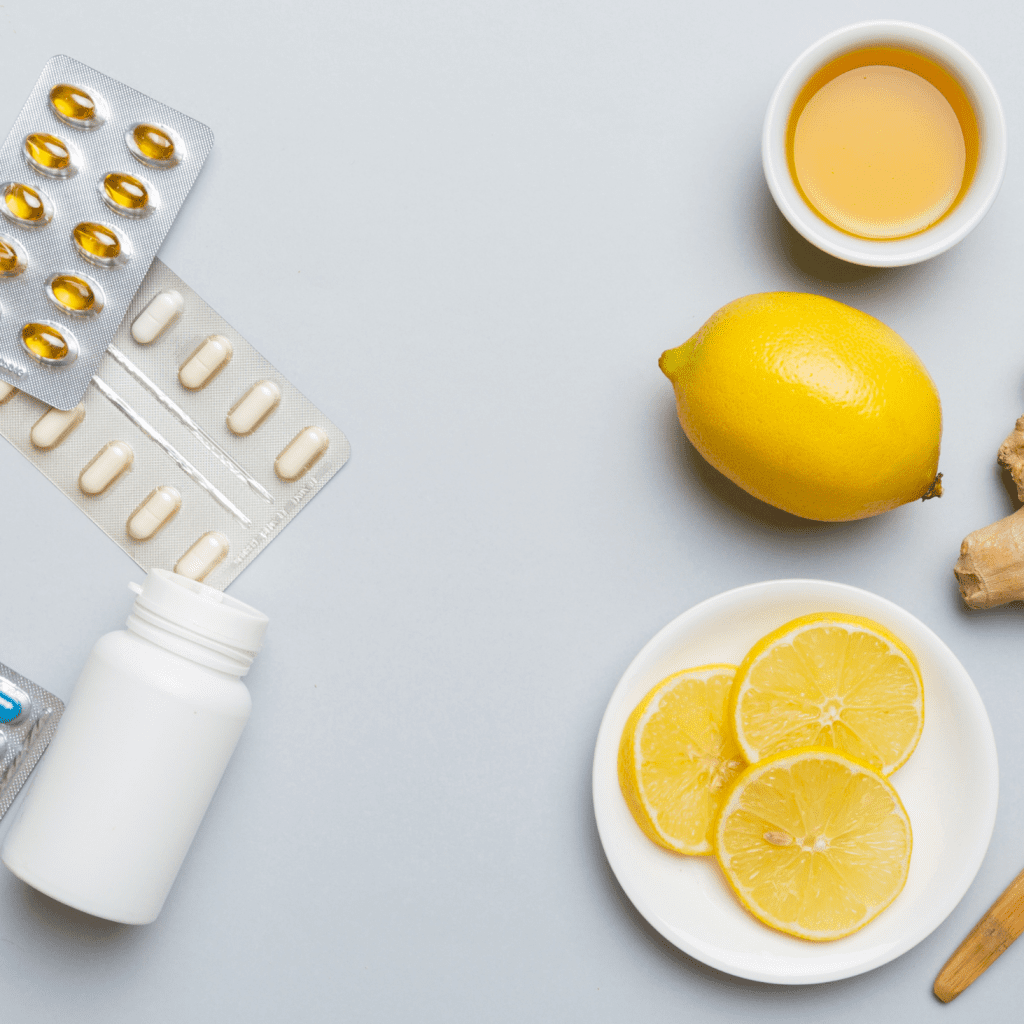
Natural Disinfectants for Everyday Use
While store-bought disinfectants work well, you might want to think about using natural cleaners. They can be gentler and better for the environment. Many natural items can fight germs and viruses, even the influenza virus.
White vinegar is one of the best natural cleaners. It’s acidic and can kill many types of bacteria and viruses. You can make a simple all-purpose cleaner by mixing equal parts of water and white vinegar in a spray bottle. Hydrogen peroxide is another strong option. It cleans as it breaks down into water and oxygen, so it’s safe for most surfaces.
Always test natural cleaners on an area that isn’t easy to see first. This way, you can be sure they won’t harm your surfaces. Using these cleaners can help you keep your home tidy while caring for your family’s health and the planet.

Air Quality and Ventilation
Good air quality in your home is really important for preventing the flu. When air is still, it can hold germs that might make you sick. Keeping a good flow of air and using air purifiers can help make your home’s air much healthier.
This part looks at why fresh air is important and talks about the good things that come from using air purifiers and filters to improve the air you breathe inside.
Importance of Good Ventilation in Preventing Illness
Proper ventilation is very important to reduce indoor air pollutants. This includes respiratory viruses like the flu. When fresh air moves through your home, it helps remove these harmful substances. This leads to better air quality and less chance of getting sick.
During flu season, when people often keep windows and doors closed, air circulation is even more necessary. Simple actions, like opening windows for a few minutes each day, even in colder months, can greatly improve indoor air quality. Fresh air coming in and stale air going out helps lower the number of virus particles in the air.
Using these ventilation tips, along with regular cleaning, creates a better living space. It helps keep your home healthier and reduces the risk of illness.

Air Purifiers and Filters: Enhancements for Your Home’s Air Quality
Air purifiers and filters help protect your home from airborne viruses and pollutants. They make the air better to breathe. These devices filter the air and catch particles like dust, pollen, pet dander, and tiny viruses and bacteria.
Air purifiers with HEPA filters work really well. They can get rid of up to 99.97% of tiny airborne particles, even those as small as 0.3 microns that may carry viruses. For those who have allergies or strong sensitivities, air purifiers can ease symptoms and help with breathing.
Think about putting air purifiers in popular areas of your home, like the living room or bedrooms, to filter the air best. These machines are helpful for disease control and help keep your home clean and healthy.
Safe Practices Beyond Cleaning
Keeping your home clean is very important to stop the flu from spreading. But there are other safe habits you should add to your daily life. These habits work well with cleaning. Together, they form a complete way to prevent the flu.
Simple things like washing your hands and covering your mouth when you cough can make a big difference. These easy habits help reduce the spread of germs.

Handwashing: Your First Line of Defense Against the Flu
Handwashing is one of the best ways to stop the flu, but it is often forgotten. Washing your hands well and regularly can help stop germs, including the influenza virus, from spreading. The World Health Organization keeps saying that handwashing is very important for keeping people healthy.
Try to wash your hands before and after you cook, eat, use the restroom, touch your face, or meet someone who is sick, especially during influenza vaccine season. Make sure to scrub your hands with soap and water for a longer period of time, at least 20 seconds. Don’t forget to clean the backs of your hands, between your fingers, and under your nails.
If you don’t have soap and water, use a hand sanitizer that has at least 60% alcohol. Washing your hands often is a simple and effective way to keep you and others safe from getting sick.
The Role of Masks and Personal Hygiene in Flu Prevention
The flu vaccine helps a lot, but good hygiene also protects us from the virus. Wash your hands often and think about wearing a mask if you are sick and must leave the house. This is especially important in busy places or if you are sick. Masks can help stop the spread of tiny droplets.
When you cough or sneeze, cover your mouth and nose with a tissue or your elbow. Encourage the people near you to do this too. It helps keep germs from spreading and protects others.
Good hygiene is important not just for one’s health but also for others. This is especially true for those who are at risk of severe illness.

Conclusion
Maintaining a clean home during flu season is very important for your family’s health. You should focus on areas that people touch often. It helps to use the right cleaning products. Eco-friendly cleaners are a safe way to keep your home free of germs. Make sure your home is well-ventilated. Also, practice safe habits like washing your hands regularly. By doing these things, you can make a healthier space for yourself and your loved ones. Stay informed, stay clean, and face flu season with confidence!
Frequently Asked Questions
How often should I clean high-touch areas during flu season?
During the flu season, it is a good idea to clean high-touch surfaces several times a day, especially when flu activity is high. Keeping a regular cleaning routine for these important surfaces can help reduce the virus’s chance to live and spread.
Can natural cleaners effectively kill flu viruses?
Yes, some natural cleaners, like vinegar and hydrogen peroxide, can fight viruses and kill the influenza virus. These friendly choices are gentle but strong for cleaning your home.
What are the main differences between cleaning, sanitizing, and disinfecting?
Cleaning is about getting rid of dirt and mess. Sanitizing focuses on lowering bacteria to a safe level. Disinfecting is different. It kills a wider range of germs, including viruses. This is important for preventing the flu and keeping good hygiene.
How can I improve indoor air quality at home without expensive equipment?
Improving the air inside your home can be easy. Just open your windows for a little while to let in fresh air. This green habit helps reduce clutter too. Both of these actions can support disease control and make your living space healthier.
Are there any specific cleaning precautions for homes with vulnerable individuals?
In homes where there are people who are weak or have less strong immune systems, it is important to clean and disinfect often. Doing this helps protect against viruses. It also lowers the chance of severe illness or flu complications.